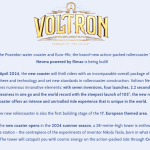What happened to Croatian gold reserves?
According to the latest World Gold Council list, the most extensive reserves of gold in the world are kept by the United States. The Americans have 8133.5 tons of gold and are far ahead of Germany (3373.6), Italy (2451.8), France (2436) and Russia (1857.7), reports tportal.hr on April 29, 2018.
As for states of former Yugoslavia, Serbia has the most gold, 19.4 tons, followed by Macedonia with 6.9 tonnes, Slovenia with 3.2 tonnes and Bosnia and Herzegovina with three tons.
Croatia and Norway are the only countries in Europe with no gold reserves.
Croatia has been without most gold reserves since 2001, when the Croatian National Bank (HNB), at the time when it was led by Governor Željko Rohatinski, sold all of its gold.
Following an agreement on the division of the gold assets of former Yugoslavia which were kept at the Bank for International Settlements in Basel (BIS), Croatia in April 2001 became the owner of 13.12 tons of gold, worth about 115 million dollars at the time. The HNB first turned the gold into short-term deposits and deposited it with commercial banks.
The central bank explained that this decision was made for several reasons. First, the price of gold is unstable and depends on the unpredictable market, while deposits have fixed interest rates and earnings can be predicted. The second reason was that the potential gains from the gold price increases would go directly into the HNB’s capital and would not be payable to the state budget, which was not the case with interest earnings on deposits.
But, after just a few months, in September 2001, the Croatian National Bank sold the gold at the price of 277.78 dollars an ounce.
In addition to the 13.12 tons of gold in Switzerland, in 2004 and 2005 Croatia received a 23 percent stake in Yugoslav gold deposited at the French central bank and the Credit Suisse bank in Zurich. This gold was sold at the order of the Finance Ministry led by Ivan Šuker, which was responsible for the disposal of assets of the former Yugoslavia.
The sale was completed in November 2005 in two transactions totalling slightly more than 31 million dollars. The money was transferred to a special foreign currency account of the state budget kept at the HNB.
Translated from tportal.hr.







